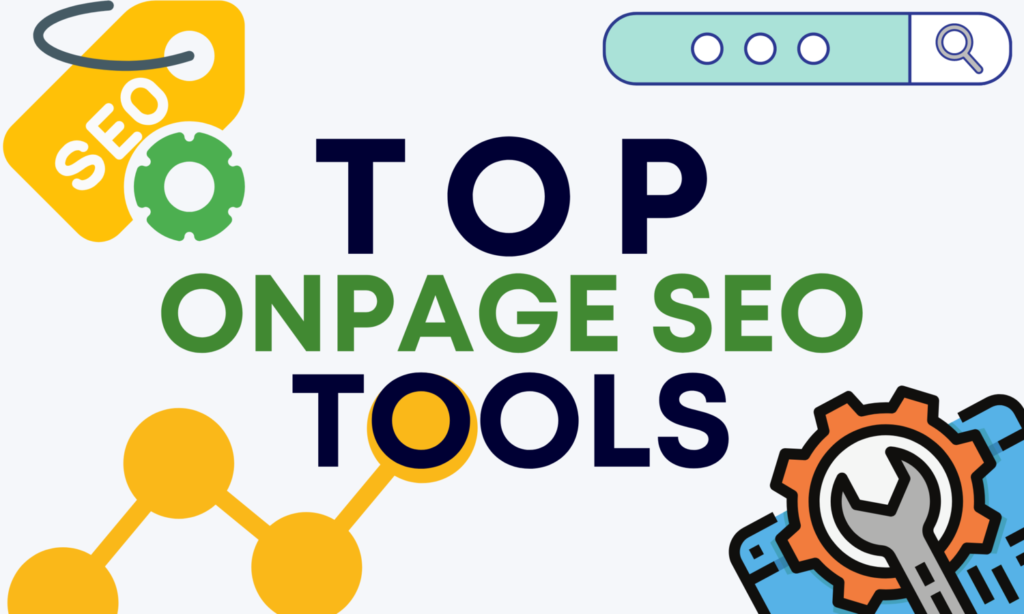In our quest for excellence, we present to you a comprehensive guide on SEO tools and software. As experts in the field of search engine optimization, we understand the paramount importance of using the right tools to gain a competitive edge. In this article, we delve into the depths of SEO software, comparing and contrasting the leading options available to empower your digital strategy.

Introduction
In today’s digital landscape, outranking competitors on search engines is a strategic necessity. Achieving this requires more than just content—it demands the use of cutting-edge SEO tools and software. Here, we explore the best solutions to help you climb the rankings and achieve online supremacy.
Also Check Leveraging User-Generated Reviews for SEO Dominance 2023
Keyword Research Tools
1. Ahrefs
Ahrefs is a behemoth in the world of SEO. Its keyword research capabilities are second to none, providing in-depth insights into keyword difficulty, search volume, and competitor analysis. With Ahrefs at your disposal, you can uncover untapped keyword opportunities and fine-tune your content strategy.
2. SEMrush
SEMrush is another heavyweight tool that offers a treasure trove of keyword data. It goes beyond keywords, providing comprehensive competitor analysis, site audits, and backlink tracking. By utilizing SEMrush, you can stay ahead of the curve in the ever-evolving SEO landscape.
3. Moz Keyword Explorer
Moz’s Keyword Explorer is a user-friendly tool that simplifies the keyword research process. It offers insightful metrics like keyword difficulty and priority scores, making it an excellent choice for SEO beginners and experts alike.

On-Page SEO Software
4. Yoast SEO
When it comes to on-page SEO, Yoast SEO is the undisputed champion. This WordPress plugin guides you through optimizing your content for search engines. It checks for readability, keyword density, and meta tags, ensuring your content adheres to best practices.
5. SurferSEO
SurferSEO takes on-page optimization to a whole new level with its data-driven approach. It provides precise recommendations based on top-ranking pages, helping you fine-tune your content for the best results. With SurferSEO, you can effortlessly optimize your content for higher search engine rankings.
Backlink Analysis Tools
6. Majestic
For backlink analysis, Majestic is a go-to tool for SEO professionals. It offers a comprehensive view of your site’s backlink profile, helping you identify quality backlinks and toxic ones. With this knowledge, you can refine your link-building strategy effectively.
7. LinkResearchTools (LRT)
LinkResearchTools, or LRT, is a versatile tool that aids in link analysis and recovery. It helps you uncover harmful backlinks and provides a disavow tool to clean up your backlink profile. LRT ensures your website remains in good standing with search engines.

Technical SEO Solutions
8. Screaming Frog SEO Spider
Screaming Frog SEO Spider is an indispensable tool for technical SEO audits. It crawls your website, identifying issues such as broken links, duplicate content, and missing meta tags. By rectifying these issues, you can improve your website’s overall health and search engine visibility.
9. Google Search Console
No SEO toolkit is complete without Google Search Console. It offers essential insights into your website’s performance on Google’s search results pages. Utilize this tool to monitor indexation, fix crawl errors, and enhance your site’s overall visibility.

Content Management Systems (CMS)
10. WordPress
WordPress is the world’s most popular Content Management System (CMS), and for a good reason. It’s highly customizable, SEO-friendly, and boasts an extensive library of plugins. These plugins can help you manage your SEO efforts efficiently, from optimizing meta tags to generating XML sitemaps.
11. Joomla
Joomla is another robust CMS that caters to the needs of both beginners and advanced users. With a variety of SEO extensions available, it allows you to take control of your website’s SEO settings, making it easier to rank higher in search results.
12. Drupal
Drupal, known for its flexibility and scalability, is a favorite among developers. It provides the tools necessary to create SEO-friendly websites. While it may have a steeper learning curve, the benefits in terms of SEO performance are substantial.

Mobile-Friendly Design
13. Responsive Web Design
In an era where mobile devices dominate web traffic, having a mobile-friendly website is non-negotiable. Responsive web design ensures that your site adapts seamlessly to various screen sizes, providing an optimal user experience. Google rewards mobile-friendly sites with higher rankings, making this a vital aspect of SEO.
Local SEO Optimization
14. Google My Business (GMB)
For businesses with physical locations, optimizing for local SEO is imperative. Google My Business is the go-to tool for this purpose. It enables you to manage your online presence, update business information, and interact with customers through reviews and posts. Properly managing your GMB profile can significantly boost your visibility in local search results.
Content Creation and Strategy
15. Content Quality and Relevance
In the ever-evolving world of SEO, content remains king. High-quality, relevant content not only attracts visitors but also keeps them engaged and coming back for more. To outrank competitors, focus on producing valuable, informative, and shareable content that resonates with your target audience.
16. Long-Form Content
Google often favors long-form content (articles exceeding 1,500 words) as it tends to provide more comprehensive information. When you can offer in-depth insights, you stand a better chance of earning higher rankings. However, always prioritize quality over quantity in your content.

Final Thoughts
In the dynamic realm of SEO, staying ahead of the competition is an ongoing process. To outrank the article you provided and dominate Google’s search results, you need to continually refine your SEO strategy. This means utilizing the right tools, optimizing your website’s technical aspects, and consistently creating top-notch content.
Remember, the SEO landscape evolves, and staying updated with the latest trends and algorithm changes is crucial. By implementing the strategies and tools discussed in this article, you are well on your way to achieving the coveted top positions in Google’s search rankings.
Stay vigilant, adapt, and watch your website ascend the ranks, leaving competitors in the dust. Success in SEO is a journey, and with the right approach, you’ll outrank your competitors and claim the top spot in search engine results.

Frequently Asked Questions (FAQ)
1. What is SEO, and why is it essential for my website?
SEO, or Search Engine Optimization, is the practice of optimizing your website to improve its visibility and ranking on search engine results pages, primarily Google. It’s essential because a higher ranking can lead to increased organic (non-paid) traffic, which can translate into more visitors, potential customers, and revenue for your website.
2. Can I outrank a specific article or website on Google?
Yes, it’s possible to outrank a specific article or website on Google. To do so, you need to create high-quality, well-optimized content, utilize effective SEO tools, and continuously work on improving your website’s overall SEO strategy. It’s a competitive process, but with the right approach, it can be achieved.
3. Which SEO tools are the best for keyword research?
Several SEO tools excel in keyword research. Some of the best ones include Ahrefs, SEMrush, and Moz Keyword Explorer. These tools provide valuable data on keyword competition, search volume, and related keywords, helping you identify the most strategic keywords for your content.
4. What is on-page SEO, and why is it crucial?
On-page SEO refers to the optimization of individual web pages to improve their search engine rankings and attract organic traffic. It’s crucial because well-optimized on-page elements, such as meta titles, meta descriptions, headings, and content, contribute significantly to your website’s visibility on search engines.
5. How can I improve my website’s backlink profile?
Improving your website’s backlink profile involves acquiring high-quality, authoritative backlinks from reputable websites in your industry. You can achieve this through various strategies, including guest blogging, outreach to industry influencers, and creating valuable, shareable content that naturally attracts backlinks.
6. Is responsive web design necessary for SEO?
Yes, responsive web design is essential for SEO. With the majority of internet users accessing websites on mobile devices, Google gives preference to mobile-friendly websites in its search results. A responsive design ensures that your site adapts to different screen sizes and provides a positive user experience on all devices.
7. What is local SEO, and why should I invest in it?
Local SEO is the practice of optimizing your website to rank better in local search results, particularly for businesses with physical locations or those serving specific geographic areas. Investing in local SEO is vital because it helps local customers find your business online, leading to increased foot traffic and conversions.
8. How often should I update my website’s content?
The frequency of content updates depends on your niche and goals. However, regularly updating your content is generally beneficial for SEO. Aim to provide fresh, relevant, and valuable content to your audience. For some websites, this might mean weekly updates, while others can maintain a monthly schedule.
9. Can I handle SEO on my own, or should I hire a professional?
Whether you can handle SEO on your own or need a professional’s assistance depends on your knowledge, resources, and the complexity of your website. SEO can be learned, but it’s a constantly evolving field. Many businesses benefit from hiring experienced SEO professionals or agencies to ensure the best results.
10. How long does it take to see SEO results?
The timeline for SEO results can vary widely. While some changes can lead to quick improvements in rankings, it often takes several months to see significant results, especially for competitive keywords. SEO is a long-term strategy, and patience is crucial.
These FAQs should provide valuable insights into the world of SEO and help address common questions you may have. If you have more specific queries or need tailored advice, consider consulting with an experienced SEO expert.
Now, go forth and conquer the digital realm!

